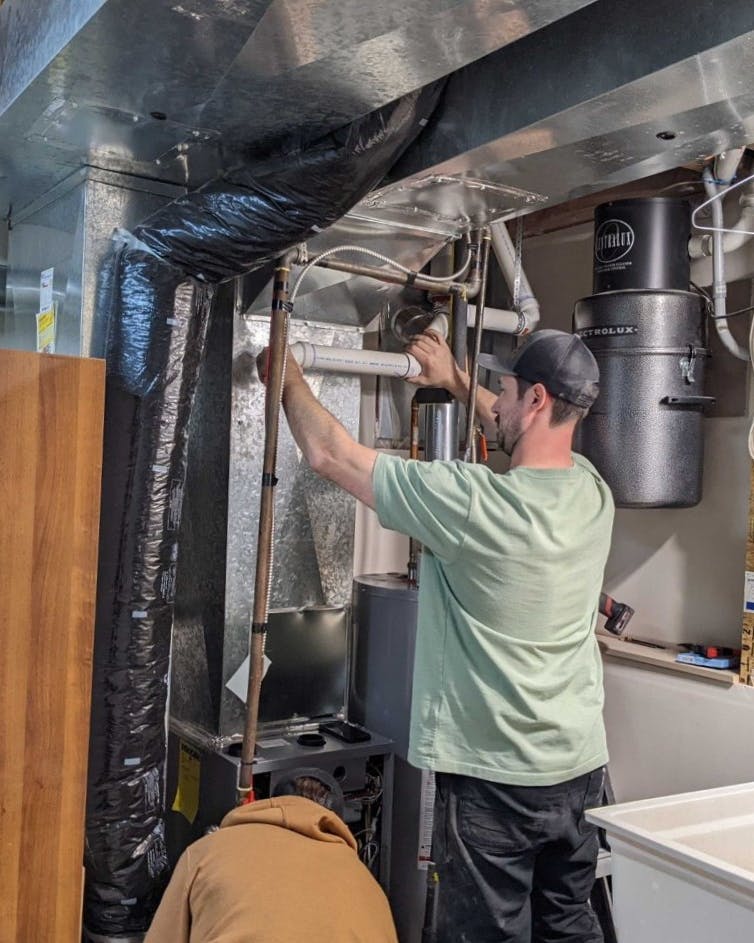Transforming energy efficiency: The case for digital home energy labels

Transforming Energy Efficiency: The Case for Digital Home Energy Labels
The residential sector in Calgary and Edmonton plays a significant role in contributing to greenhouse gas emissions, highlighting the urgent need for tools to reduce carbon footprints. About 30% of emissions in Calgary and 20% in Edmonton stem from the homes we live in. There is a clear need to improve the energy efficiency of homes.
Home energy labeling is the practice of providing homeowners with a simple indication of the energy efficiency of their home. While Canada's EnerGuide for Homes program offers insights into a home's energy efficiency, its effectiveness is hampered by low participation rates and the absence of a digital mechanism for sharing energy labels.
Enter digital home energy labels, a game-changing innovation exemplified by the Lightspark Engage platform, leveraging cutting-edge technology from Canadian cleantech software company Lightspark. This technology not only drives universal participation in home energy labeling but also provides market-wide access to these labels, enabling comparisons between homes and fostering community awareness of energy efficiency.
Incorporating data from home energy labels into the decision-making of homeowners and prospective buyers and sellers, is crucial for the market to prioritize energy-efficient properties over conventional ones. Consequently, REALTORS play a crucial role in both shaping and responding to this demand in the market.
A recent pilot project led by the Alberta Ecotrust Foundation and funded by the Alberta Real Estate Foundation demonstrated the potential of digital home energy labels. Using Lightspark's technology, the project predicted the energy use of all single-family homes in Edmonton and Calgary, providing a market-accessible digital energy label for display on a map.
The outcomes were promising, with 500 REALTORS and 41,000 homeowners engaging with the platform, resulting in 84,996 digital home energy labels being viewed over just a three month period. The platform's self-audit feature allowed homeowners to input their home's characteristics, improving the accuracy of predictive measures and providing personalized retrofit recommendations.
However, challenges emerged, including concerns about accuracy, presentation and privacy. Industry professionals raised questions about the methodology behind the scores and the potential stigma attached to homes with low energy scores. Additionally, real estate professionals expressed reluctance to invest time and resources in a platform whose market sustainability was uncertain.
To address these challenges and maximize the potential of digital home energy labels, we prepared a policy report detailing the key outcomes, possible solutions to the challenges, and recommendations for municipal policy makers and decision makers when contemplating a digital home energy labeling system.
Below is a summary of our recommendations from the report.
Addressing accuracy and credibility concerns:
Ensure transparency in digital label methodologies to build trust among stakeholders.
Establish correlations between digital metrics and established benchmarks like EnerGuide.
Communicate scoring methodologies clearly to industry actors.
Emphasize the added value of digital scores to real estate transactions.
Equity in digital home energy label policies and programs:
Prioritize equal access to information for homeowners of all economic backgrounds.
Implement financial assistance programs for energy-efficient upgrades for lower-income households.
Work with community-led organizations to increase awareness and engagement.
Ensure flexibility to accommodate diverse housing structures.
Enhancing REALTOR engagement:
Provide certainty of the sustainability of digital energy labels in the market.
Implement comprehensive training programs for REALTORS.
Integrate digital home energy labels into existing professional development courses.
Provide incentives for REALTORS to participate in the adoption of digital labels.
Integrate labels into Multiple Listing Services for seamless inclusion in real estate processes.
A complementary report by Lightspark with more technical details on the Lightspark Engage Product Launch in Calgary and Edmonton is also available.
Digital home energy labels have the potential to revolutionize the way we evaluate and improve energy efficiency in residential spaces. By addressing challenges and implementing the recommendations outlined above, policymakers can pave the way for a more sustainable and energy-efficient future in the real estate market.
In addition, while the Cities of Calgary and Edmonton highlight universal residential energy labeling as a policy goal and have identified residential energy efficiency retrofitting actions in their climate plans, the relative impact of this policy is low without a plan to connect it to actual behavior change at the homeowner level. A digital home energy label platform could help make that connection by providing homeowners and homebuyers with an accessible way to compare homes and make informed decisions around energy efficiency retrofits.
For more information please contact:
, Program Specialist, Alberta Ecotrust Foundation and visit the Digital Home Energy Label project page
Digital Home Energy Labels Policy Report
This report contains recommendations to help inform and guide the implementation of digital home energy label policy based on the pilot project.
Related posts
Explore our most recent posts.



